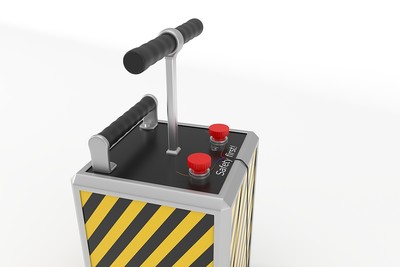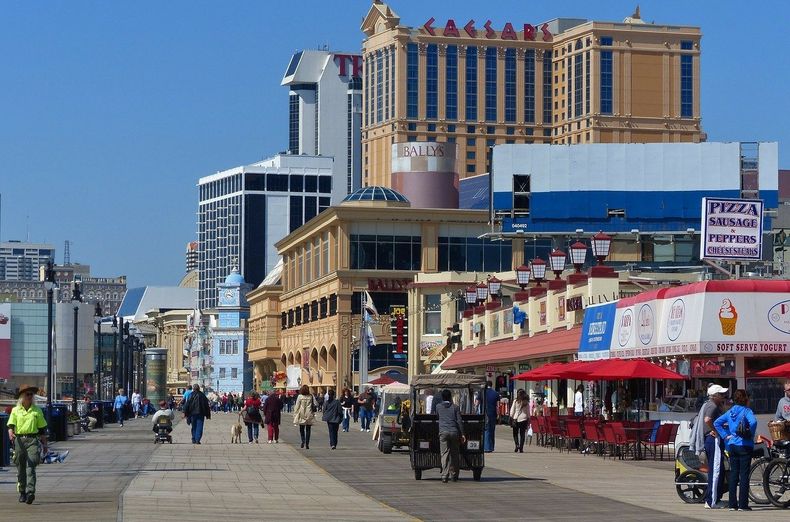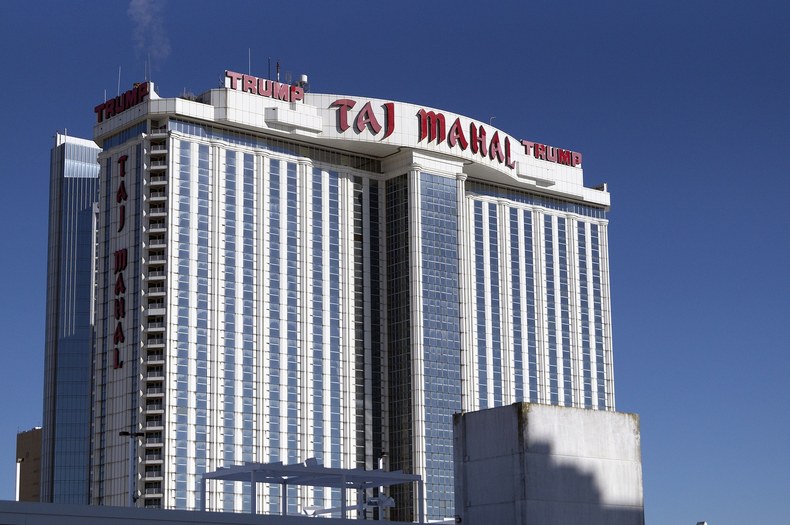 The Trump Plaza Hotel and Casino, owned by the former US president, has sat empty gathering dust since it went bankrupt and shut its doors for the final time in 2014.
The Trump Plaza Hotel and Casino, owned by the former US president, has sat empty gathering dust since it went bankrupt and shut its doors for the final time in 2014.
And now, you could be a part of history as city officials are planning to blow the casino up – and the highest bidder will be allowed to press the button!
The building is crumbling to the ground – much like Trump’s presidency – and is becoming a safety hazard in the local area, with huge chunks of debris falling onto the ground in rather dangerous fashion.
But rather than just tearing the 86,000 sq ft building, which featured a huge gaming environment and 39 floors of rooms and suites, city chiefs have come up with an ingenious way to make something from it.
On January 20, a live bidding process will begin with the top bidder earning the right to hit the plunger prior to the dynamite explosion turning the casino into rubble, and most expect the auction to raise a pretty penny.
The city mayor, Marty Small, has confirmed that his office has been besieged with phone calls about the unique auction, and outlined his own lofty ambitions for the cause. “I want to raise at least a million dollars, and I think we can accomplish that,” he said.
He also spoke of Trump’s questionable past in Atlantic City, which saw him use loopholes in bankruptcy regulations to close his three casinos in the resort while coming out on top financially. “He said he took advantage of the bankruptcy laws, took advantage of a lot of people, made a lot of money and then got out, so it’s extremely important that we do something worthwhile with this,” Small said.
All of the proceeds of the demolition, which is scheduled for February, will go to the Atlantic City chapter of the Boys & Girls Club of America, a charitable organisation that funds activities and training for youngsters in deprived areas.
Whatever Happened to Atlantic City?

Once upon a time Atlantic City was able to rival Las Vegas for being the place to be seen back in the 1920s, and after a period in the doldrums the resort was brought back to life in the 1980s as the east coast’s answer to Sin City.
Maybe major businessmen and entrepreneurs muscled in, expecting to make a quick buck, and Trump opened the Plaza complex in 1984 before following up with the Trump Marina a year later.
And then, in 1990, came the Trump Taj Mahal – a $1 billion casino that the shy and retiring owner claimed was the ‘eighth wonder of the world’.
However, recession and the easing of gambling laws in other eastern locations meant that more and more people stayed away from Atlantic City, and soon Trump’s casino fell upon hard times.
In the end, he sold all three properties after filing for bankruptcy, and today Atlantic City is something of a ghost town, with mass unemployment and poverty overshadowing the resort which is still in operation today.
Trump and the Mysteriously Disappearing Casinos

If not a businessman and alleged politician, Trump arguably should have gone into magic.
His ownership of a trio of casinos in Atlantic City disappeared without a trace when he filed for bankruptcy, despite being able to sell them off at a higher price. All in all, Trump Entertainment Resorts – the umbrella company of all the properties he owned – filed for bankruptcy on four separate occasions.
That included the three premises in ‘America’s playground’, as well as the short lived Trump World’s Fair, another casino in Atlantic City, and the Spotlight 29 Casino in Indiana, which Trump’s firm agreed to operate.
The Trump Taj Mahal was financed using so-called ‘junk’ bonds, a high return, high risk solution used in only the most desperate of circumstances, and it wasn’t long before the dire financial situation became public – deals to open new casinos in Detroit and Kansas City fell through due to due diligence checks suggesting Trump Entertainment Resorts was on its last legs.
In 2004, the firm applied for bankruptcy – a process Trump dismissed as a ‘technical thing’, but they emerged soon after and tried to purchase more properties in Indiana, with those approaches rejected.
In 2009, the company was wound up again due to owing a cool $1.2 billion – they sold a number of properties to balance the books, and the final nail in the coffin came in 2016 when the Trump Taj Mahal closed its doors for the last time.
